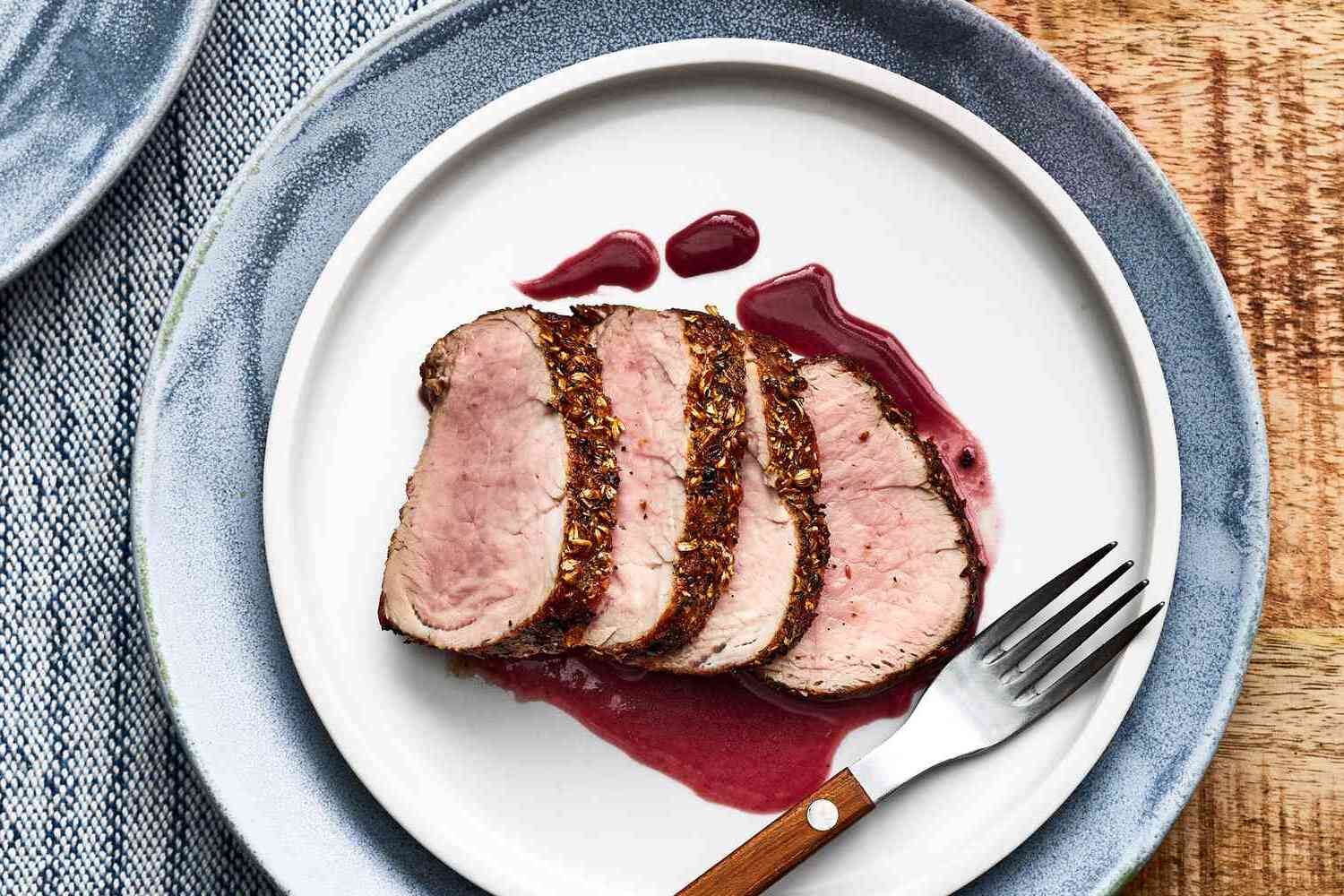
Ever wondered what's really in that juicy slice of pork tenderloin you're about to enjoy? Pork tenderloin nutrition might just surprise you with its health benefits. Often overshadowed by its fattier counterparts, this lean cut is not only delicious but packed with nutrients essential for a balanced diet. From being a powerhouse of protein to its unexpected role in a heart-healthy lifestyle, pork tenderloin is a meat lover's dream that doesn't skimp on health. But wait, there's more to this story than just protein. With a variety of vitamins and minerals in its arsenal, this cut is stealthily climbing the ranks in the nutrition world. Ready to have your mind blown by what this humble piece of meat can offer? Let's slice into the facts and discover the nutritional goldmine that is pork tenderloin.
Key Takeaways:
- Pork tenderloin is a lean and nutritious option, packed with high-quality protein, essential vitamins, and minerals. It's great for muscle building, heart health, and weight management.
- Pork tenderloin's versatility and nutrient profile make it a smart choice for balanced diets, offering creative and delicious meal options.
What Makes Pork Tenderloin a Healthy Choice?
Pork tenderloin, often overshadowed by more popular cuts, stands out as a lean and nutritious option. Pork tenderloin is remarkably low in fat, making it comparable to chicken breast, a staple in healthy diets. This cut not only provides a rich source of high-quality protein but also contains essential vitamins and minerals necessary for overall health.
- Pork tenderloin is one of the leanest cuts of pork, with less than 3 grams of fat per 3-ounce serving.
- It's packed with protein, offering about 22 grams per serving, which helps in muscle building and repair.
- This cut is an excellent source of B-vitamins, particularly B6 and B12, which are crucial for energy production and brain health.
- Zinc, found abundantly in pork tenderloin, supports the immune system and aids in wound healing.
How Does Pork Tenderloin Fit into a Balanced Diet?
Incorporating pork tenderloin into meals can be a smart way to maintain a balanced diet without sacrificing flavor. Its versatility allows it to be cooked in various healthy methods, such as grilling, roasting, or broiling, which do not require additional fats.
- Pork tenderloin can be a part of a weight management plan due to its low-fat content.
- Its high protein content makes it filling, which can help reduce overall calorie intake by curbing hunger.
- With its rich nutrient profile, including selenium, pork tenderloin supports thyroid function and antioxidant defense.
- Cooking methods like stir-frying with vegetables can turn pork tenderloin into a nutrient-dense, low-calorie meal.
The Role of Pork Tenderloin in Muscle Building
For those looking to build muscle, pork tenderloin is an excellent food choice. Its high-quality protein content, combined with a good balance of amino acids, makes it ideal for muscle repair and growth.
- Consuming pork tenderloin post-workout can aid in quicker muscle recovery.
- It contains creatine, a compound that improves performance and increases muscle mass during resistance training.
- The iron in pork tenderloin helps in transporting oxygen to muscles, enhancing endurance and strength.
- Its low fat and high protein ratio ensure that you're getting muscle-building nutrients without excess calories.
Pork Tenderloin and Heart Health
Despite misconceptions, lean pork cuts like tenderloin can be part of a heart-healthy diet. Its low saturated fat content and beneficial nutrients contribute positively to cardiovascular health.
- Pork tenderloin has less saturated fat than many cuts of beef, making it a heart-friendly choice.
- The presence of potassium in pork tenderloin helps regulate blood pressure levels.
- It also provides phosphorus, which supports heart muscle contractions and maintains the body's energy stores.
- Regular consumption of lean pork, as part of a balanced diet, has been linked to improved cholesterol levels.
Creative Ways to Enjoy Pork Tenderloin
Getting bored of the same old recipes? Pork tenderloin's mild flavor and tender texture make it a perfect canvas for a variety of culinary creations.
- Marinating pork tenderloin in herbs and spices can enhance its flavor without adding significant calories.
- Try slicing it into medallions for a quick, pan-seared dish that's ready in minutes.
- Incorporating pork tenderloin into stir-fries or salads adds a protein boost to your meals.
- For a low-carb option, stuff pork tenderloin with vegetables and bake it, creating a flavorful and nutritious dish.
Pork tenderloin, with its impressive nutritional profile, deserves a spot on your plate. Whether you're aiming for weight loss, muscle building, or simply a balanced diet, this lean cut offers versatility and health benefits that are hard to beat.
A Final Nibble on Pork Tenderloin Nutrition
Pork tenderloin isn't just another cut of meat. It's a powerhouse of nutrition, packed with protein, low in fat, and brimming with essential vitamins and minerals. Opting for this lean meat can be a smart move for those looking to maintain a balanced diet while still enjoying delicious meals. Remember, how you cook it matters a lot. Grilling, baking, or stir-frying with a dash of herbs and spices can enhance its flavor without adding unnecessary calories. So, next time you're planning your meals, consider giving pork tenderloin a spot on your menu. It's tasty, it's nutritious, and it might just become your new go-to for healthy eating.
Frequently Asked Questions
Was this page helpful?
Our commitment to delivering trustworthy and engaging content is at the heart of what we do. Each fact on our site is contributed by real users like you, bringing a wealth of diverse insights and information. To ensure the highest standards of accuracy and reliability, our dedicated editors meticulously review each submission. This process guarantees that the facts we share are not only fascinating but also credible. Trust in our commitment to quality and authenticity as you explore and learn with us.


